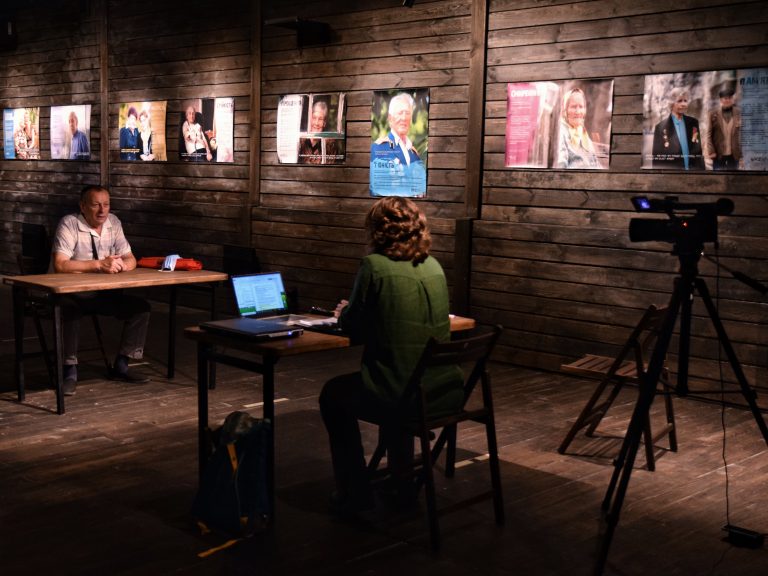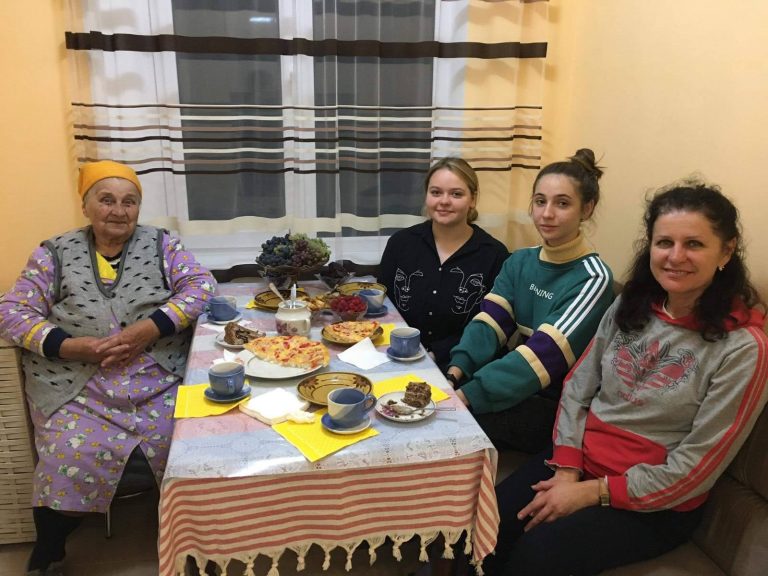Throughout 2021, the team of the Memorial Museum of Totalitarian Regimes «Territory of Terror», together with the Czech NGO Post Bellum, realized the «Lost Childhood» project. It was supported by the European Union under the House of Europe program. We managed to record and study 30 interviews with people who spent their childhood in conditions of Soviet violence, we made their stories accessible for everyone.
The families of each who agreed to leave their memories to descendants were deported from Western Ukraine in 1944-1952 as sympathizers or members of the Ukrainian underground. We talked with those whose relatives fought in the troops of insurgents, and with those whose parents took medical care, provided shelters and provisions for partisans. We spoke with the priest’s daughter and the sister of the men who were accused of killing the communist writer, Yaroslav Galan. There are those who were born in special settlements in Siberia and endure “punishment” from the first day of their lives. And there are those who being still children consciously cooperated with the resistance movement of the Stalinist regime. We collected these stories in Lviv and Ivano-Frankivsk regions

Some of them became the basis for the open-air exhibition «Lost Childhood: Heard and ‘Unseen’». We presented it in Lviv and Prague («Lost Childhood – Stories from Ukraine» in the Czech Republic) There were also stories of Crimean Tatars and a woman from the Czech Republic. All the heroes of the exhibition experienced growing up in camps, special settlements, born in the Gulag, or their childhood cope with the Holocaust, the Holodomor or the World War II.
By the way, the exhibition in the Museum square in Lviv, in Chornovola Street, 45g is available for everyone up till today.
We also organized a set of lectures as a part of the project. 12 scholars who researched the topic of «lost childhood» in historical, sociological, psychological, anthropological, philosophical and cultural fields, spoke online about the results of their researches and directly communicated with interested listeners.
An important part of the project team’s work was cooperation with school students and their teachers. Our specialists conducted online meetings where they shared the experience of interviewing, so with its help, students could preserve and transmit to future generations the memory of their relatives, acquaintances or simply interesting personalities. During our collaboration, young researchers have already recorded their first oral history interview under the guidance of their teachers.

The main result of our work on the project was an online platform, where together with artistic photo-portraits, scanned old photos and documents, we uploaded all the most interesting that we had heard in conversations with our narrators. The project’s curators and scientists tried to present the world before and after the deportation, as well as the culmination of the trauma – a cattle wagon and a trip to Siberia. Each quote leads to the story of a lost childhood.
We also published the entire set of online lectures, news about the main events that took place during the project and an artistic reflection on the collected material from Andriy Dostlev, Lia Dostleva and Olga Skliarska.
